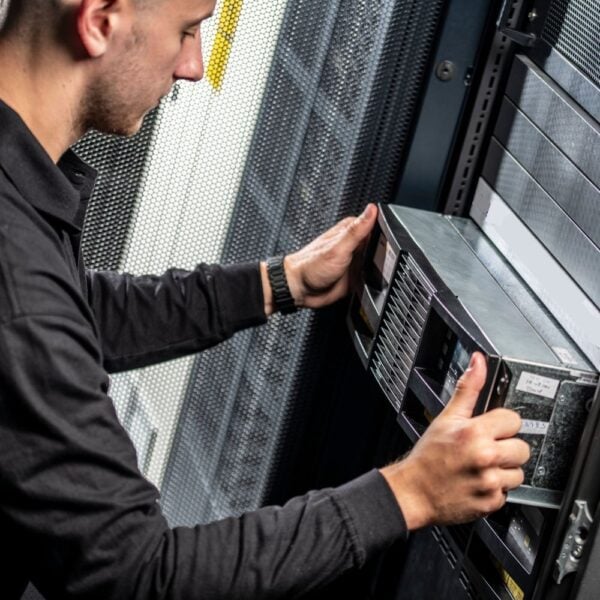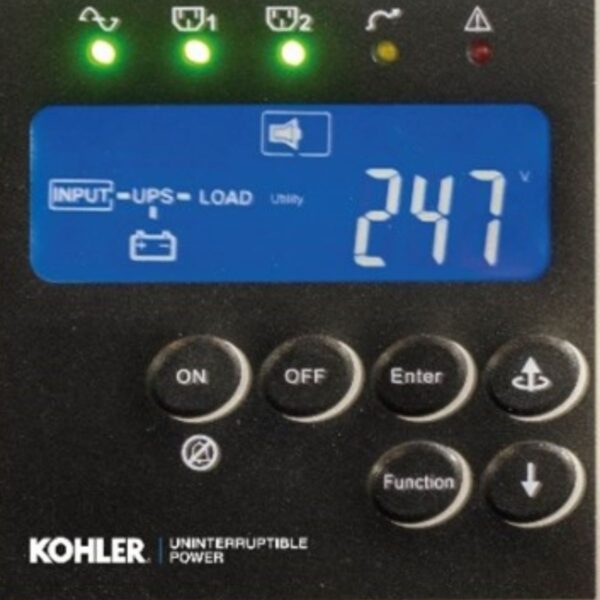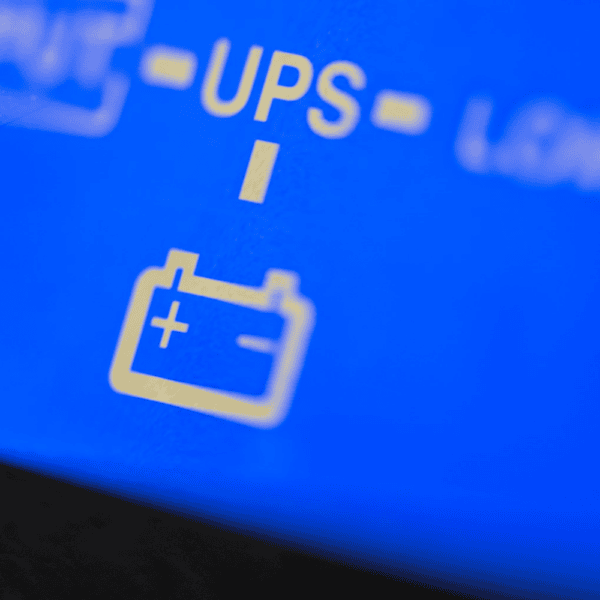Uninterruptible Power Supply (UPS) systems are essential for ensuring continuous, reliable power and so selecting the right UPS battery technology is crucial for optimizing performance, efficiency, and cost-effectiveness.
To help engineers and consultants make informed decisions when specifying UPS solutions, this article aims to provide an overview of the three leading UPS battery technologies currently available in the market: Valve-Regulated Lead-Acid (VRLA), Lithium-Ion (Li-ion), and Nickel-Zinc (NiZn).
Valve-Regulated Lead-Acid (VRLA) Batteries: VRLA batteries have long been the industry standard for UPS systems due to their affordability and reliability. They use a lead-acid chemistry sealed in a maintenance-free casing, preventing electrolyte leakage.
Pros:
- Lower initial cost compared to alternative chemistries.
- Reliably and widely used, and well-understood technology.
- Requires minimal servicing and maintenance.
- Readily available with a mature supply chain.
Cons:
- Typically lasts 7-8 years in UPS applications but longer lifespans are available.
- Lower energy density, providing less power output per unit of weight compared to newer chemistries.
- Lifespan and performance are affected by temperature.
Best Suited For:
- All installations with moderate to long runtime requirements.
- Cost-sensitive applications.
Lithium-Ion (Li-Ion) Batteries: Lithium-Ion batteries are increasingly popular in UPS systems due to their higher energy density, longer lifespan, and faster recharge capabilities.
Pros:
- Typically lasts 8–15 years, reducing replacement frequency.
- Higher energy density, providing more power in a smaller footprint and making them ideal for space-constrained installations.
- Rapid recharge cycles improving UPS availability.
- Lighter weight making them easier to install and transport compared to VRLA.
Cons:
- Higher initial cost, as they are often more expensive than VRLA batteries.
- Requires advanced fire suppression and containment.
- Although rare, Li-ion batteries have a risk of thermal runaway if not properly managed.
Best Suited For:
- Data centers and high-density, short autonomy environments where space and weight are concerns.
- Critical infrastructure with long-term investment goals.
- Applications requiring fast recharge cycles and frequent discharges.
Nickel-Zinc (NiZn) Batteries: Nickel-Zinc batteries are an emerging technology in the UPS market, offering high power density, long lifespan, and eco-friendliness.
Pros:
- Greater power output in a smaller, lighter package.
- Typically lasts 10–15 years with excellent cycle performance.
- Contains no toxic heavy metals, making recycling simpler.
- Requires less cooling compared to Li-ion and VRLA.
Cons:
- More expensive than VRLA, but costs are decreasing.
- May require customized UPS configurations due to different voltage profiles.
Best Suited For:
- Mission-critical, short autonomy applications requiring high energy density and long lifespan.
- Eco-conscious clients aiming for sustainable, lead-free solutions.
- Installations where space is limited.
In conclusion, when selecting a UPS battery technology, engineers and consultants must consider lifecycle costs, performance needs, and environmental factors. For cost-sensitive applications, VRLA batteries remain a practical choice despite their shorter lifespan. However, when coupled with active battery monitoring and management system from KUP, it is possible to increase reliability and lifespan. In space-constrained, high-performance environments, Li-ion offers superior energy density and longer lifespan, albeit at a higher cost. And finally, for eco-conscious and high-efficiency operations, Nickel-Zinc provides a sustainable, long-lasting solution with minimal environmental impact.
Ultimately, the best UPS solution depends on client requirements, operational demands, and budget considerations. However, by understanding the strengths and limitations of each technology, engineers and consultants can recommend the most effective UPS battery solutions for their clients’ needs.
You can find out more about UPS batteries in our comprehensive guide here.
TO DISCUSS HOW WE CAN HELP YOU FIND CRITICAL POWER SOLUTIONS SPECIFIC TO YOUR REQUIREMENTS CONTACT US AT [email protected] OR CALL US ON +65 6302 0702.




